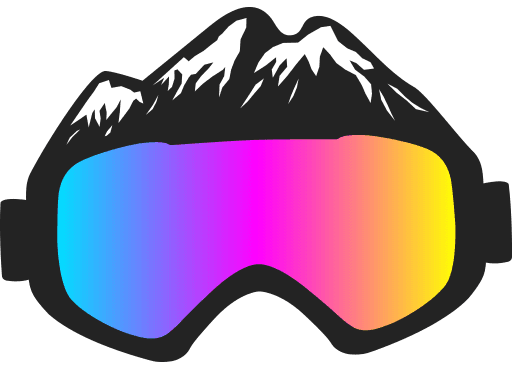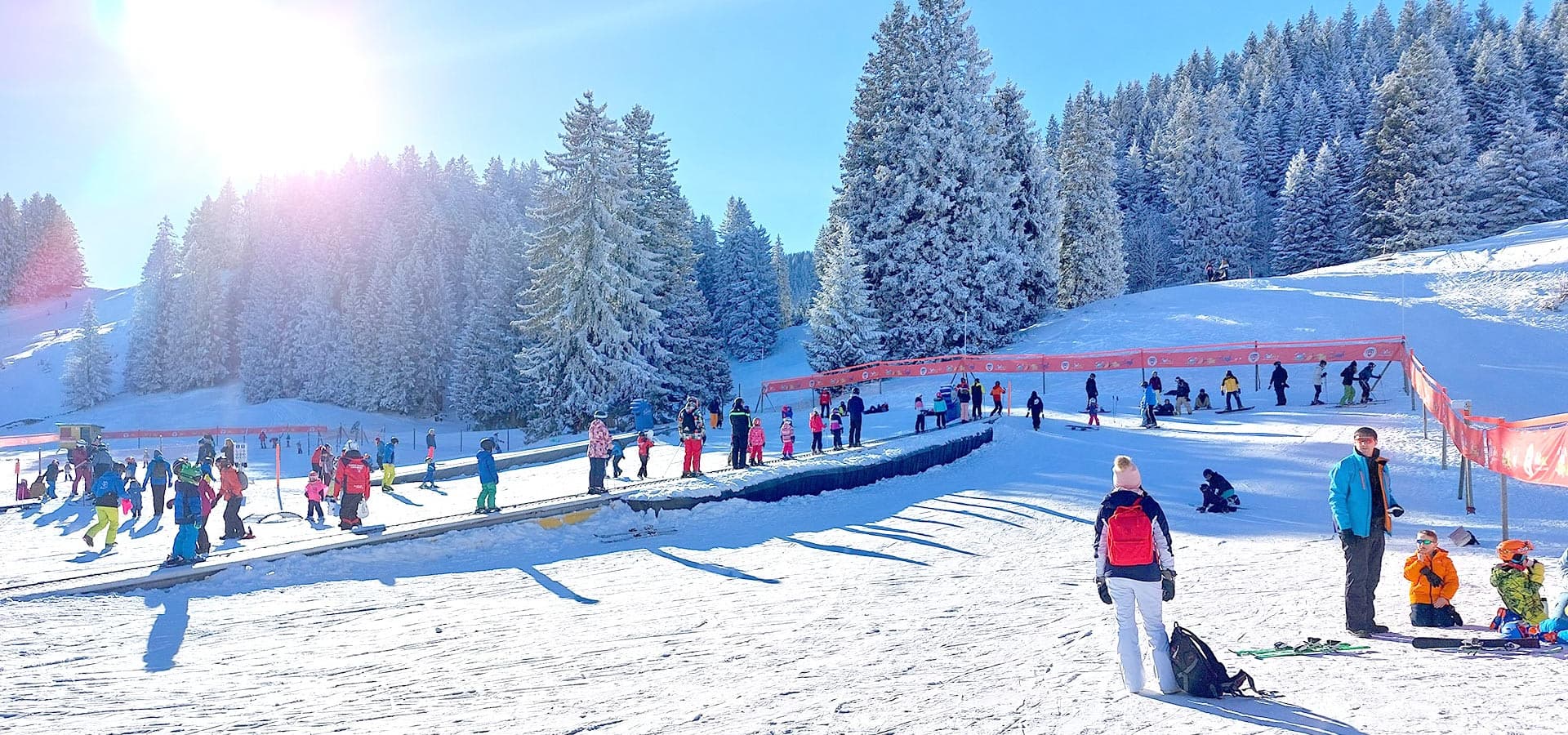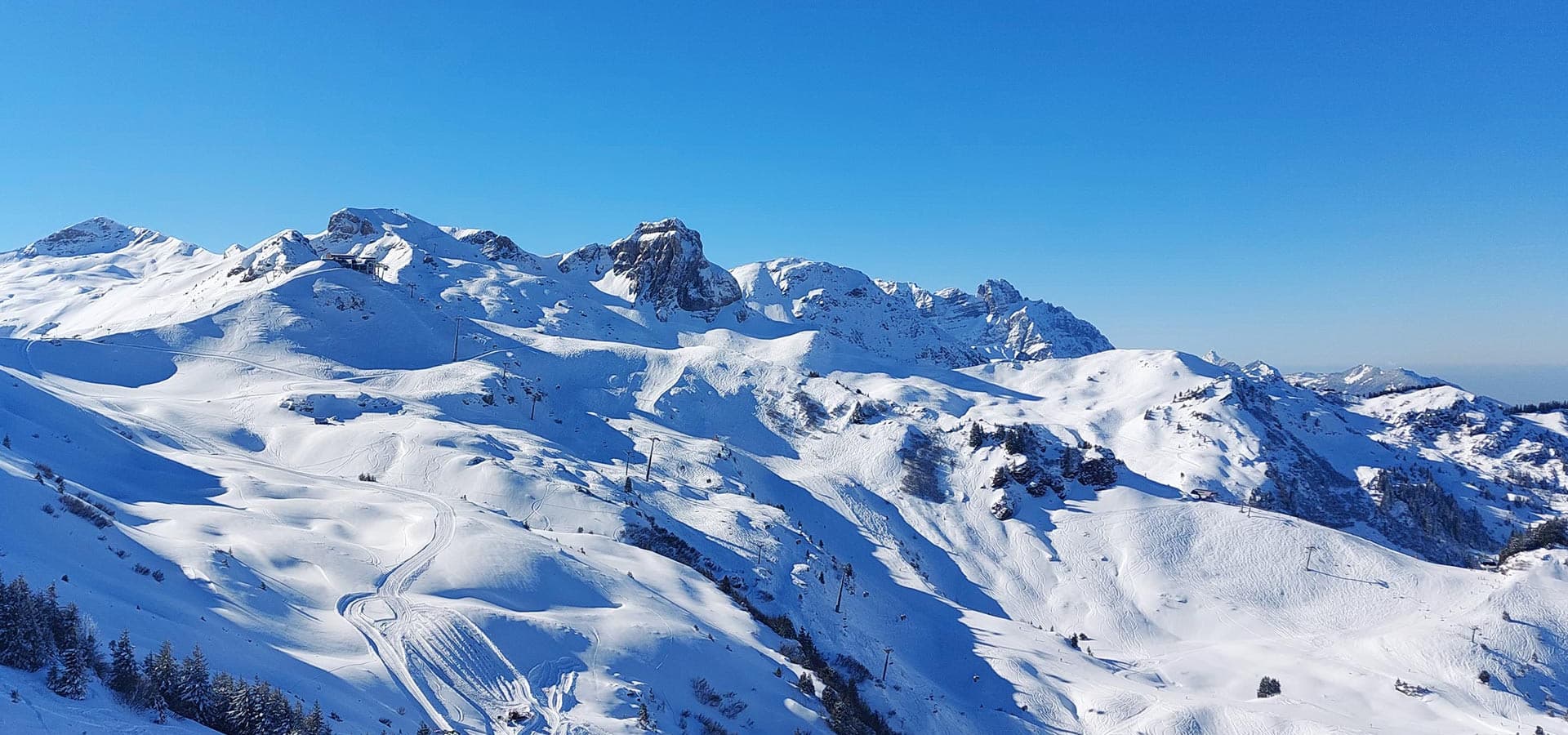

3.1 Rotate from sliding to fullbase position
When turning from the sliding to the fullbase position, we try to turn the snowboard so that the nose turns towards the valley. We do this without starting to ride in one direction. This is ideal for practicing if the basic turns don't quite work yet.

Sliding on the backside (heelside) edge to fullbase
Try to start slightly sliding or even standing on the backside edge. Now point your front hand towards the valley or turn your upper body slightly in the corresponding direction. With this movement, the nose of your snowboard should immediately start to turn towards the valley.
By maintaining this pre-rotation, your snowboard will continue to turn in this direction until you release the rotation again. If this does not work, something is wrong. Typically, you either have a locked hip or are standing too much on your back foot. Give your snowboard time to turn and try not to make any sudden movements.
Sliding on the frontside (toeside) edge to fullbase
Start on the frontside edge. It is best to simply try to look towards the valley. In most cases, your upper body will automatically turn a little and the snowboard will start to turn. Otherwise, the principle remains the same as when turning from the backside edge. A video will be available soon.
Reasons why it doesn't work with frontside turns
When snowboarding, we often make certain movements with our upper body or arms to initiate a turn. The nasty thing about this is that we can move our arms independently of our upper body and also twist our upper body without our hips turning as well. When we make these independent movements, no power is transferred to the snowboard.
So if nothing works, you can try to keep the weight slightly on the front foot and then push your hips slightly forward on the front side. The snowboard should now immediately start to turn as the pressure on the front foot increases at the toes. Note that you should only feel this on your toes. Actively tensing your toes or clawing at your boots will unfortunately not help. Depending on the person, you may have to actively allow your snowboard to start sliding.
If this doesn't work and you are now super cramped (standing on the backside edge), you may be actively resisting speeding up. Typically, the toes are pulled up or the front leg is extended at the same time as the hips are turned, so that the hips are tilted. This usually happens unintentionally because your brain tries to prevent you from sliding. It often helps to have some help from a person who gives you more security to overcome this.
The crux of putting more pressure on the toes
Sometimes you hear in courses that you should put more pressure on the toes of the front foot. This can be confusing. In the purest implementation, you simply press your toes into the ground. This is super tiring and makes very little impact on our snowboard. Some people try to solve it with their ankles, which can also be very exhausting. In most cases, you then lean less into the turns and are more susceptible to catch an edge and, in the worst case, your hips also end up in a misaligned position.
As we turn our upper body, we turn our hips slightly and are therefore more likely to unconsciously transfer the power to the snowboard via the knees, which requires the least amount of energy. More pressure on the toes is therefore not to be taken literally, but rather something that you can feel due to the movement. But especially as a beginner, you don't necessarily have to.
I can't feel any pressure on my toes
It could well be that you are learning to snowboard and have never felt any pressure on the toes. When you're a bit more experienced, you'll notice that the pressure is more noticeable in the shins and on the other side in the calves. If you tend to have muscle pain in these areas or your feet hurt, there is a good chance that you are using your ankle joint too much. If you have very soft shoes, you may also have to work more on your ankle. In this case, slightly harder shoes would help. If you struggle with backside turns, it may make sense to set the highback a little steeper.
Aggravating factors
Boots that are too big or poorly fitting can be a big problem, because as soon as your heel lifts up too far in the boot, you have a gap that you have to compensate for before the force can be transferred to the snowboard. Other factors, such as the snow conditions or your snowboard, also play a role. In certain snow conditions, it can be more difficult to feel which movement leads to what. Especially in slushy or very wet snow, your snowboard may react with a delay or not at all. Try to hop a little or use a steeper section. What can also be very troublesome are snowboards that have been stored for too long or boards that have not been waxed. Because if the snowboard doesn't slide well, you won't get good or constant feedback from the snowboard. This can make learning more difficult.
Did it work?
Congratulations, then you're ready for the 4.0 Basicturn skidded

Next steps
Check your skill
Following skills are required to be ready for the next module.


